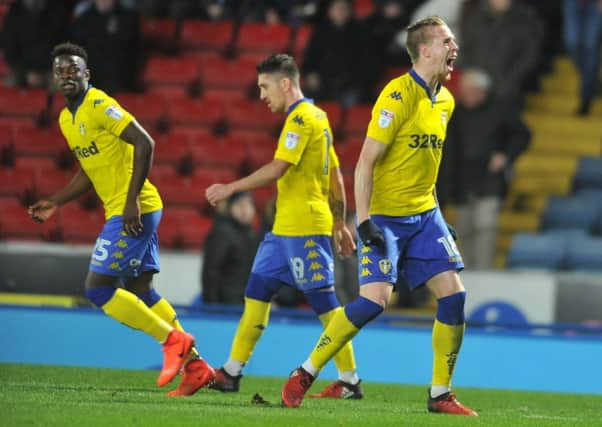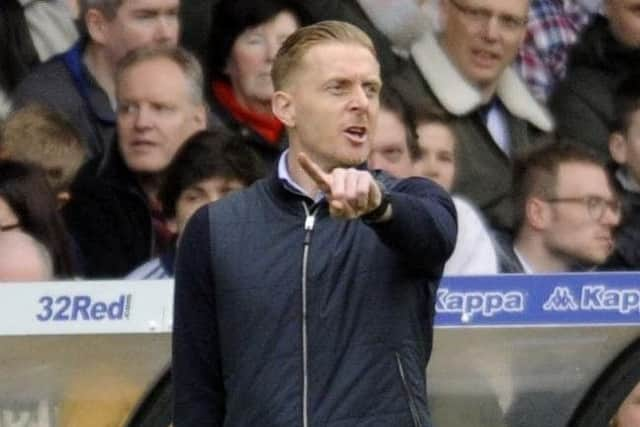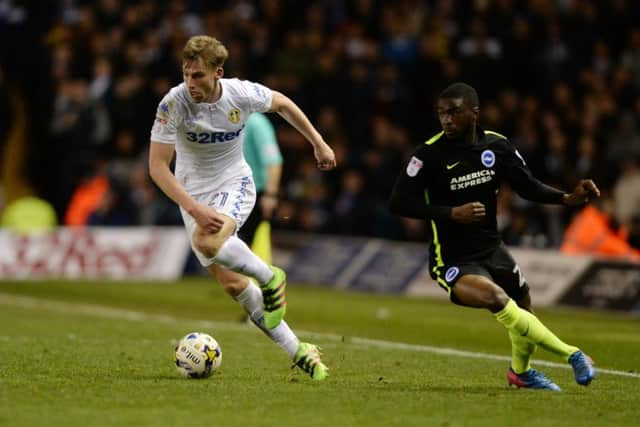Phil Hay: Principles play a part in principal objectives at Leeds United


What has been said is that Monk’s preparation at Thorp Arch last week was especially intense; a demand for urgency embraced by players who saw Brighton as a critical game. If they still have a chance of automatic promotion then defeat on Saturday would have waved it out the door. There was similar awareness of the potential for movement below them in the Championship.
“We really prepared well,” Monk said after Leeds’ 2-0 win, as if the average week was any different.
Advertisement
Hide AdAdvertisement
Hide AdWith hindsight, Liam Cooper for Jansson was a seamless swap and made to look that way by the result at Elland Road, results elsewhere and the fraction by which Cooper avoided conceding an own goal. Perception is dictated by incidents like that and Cooper’s inclusion looks good for Monk because a brave statement came at no cost. It left no doubt about who is running this team but it was hardly taken with impunity. Monk made his decision before the top eight started spilling points over the weekend. Cooper knew he was starting 24 hours in advance.


Monk spoke repeatedly about “principles” in response to questions about Jansson’s absence. There was no mention of fitness, fatigue or yellow cards. Years of listening to football managers talk teaches you that ambiguity is a useful tool for saying what needs to be said without going too far. Monk would not have left anyone to read between the lines if Jansson’s absence was nobody’s fault but he skilfully avoided a full-scale witch-hunt. Was Jansson too complacent or too sure of his place? Did Cooper’s approach to a hard stint of training convince Monk to assert himself and make a point? The full story, such as it is, will probably never be told.
Jansson, who is abroad on international duty with Sweden, is still the better of the two defenders and still one half of the best centre-back pairings Leeds have had in over a decade. On Monday he was named in the Championship’s team of the year, a line-up put together via votes cast by numerous football writers and journalists, and the argument about whether he or Kyle Bartley has tipped the scale more convincingly is a marginal discussion. Their clearances amount to almost 600 and more than 270 each.
Cut through the statistics and there is nothing between them. At the bottom line, Leeds have lost six of 27 league games with Bartley and Jansson together at the back. They have lost five of 11 with a different partnership. The correlation between Monk’s choice of defence and those records is not entirely exact but the numbers dispel the idea that the club could do without Jansson for long.
Advertisement
Hide AdAdvertisement
Hide AdThe counter-argument goes that Leeds could no more do without Bartley or Chris Wood, or a goalkeeper in Rob Green who has made himself look like the best in the division in the past seven or eight games. Were Leeds a mass of individuals they would fall apart on days like Saturday as one block drops away and the Jenga tower crashes down. They have coped without Jansson and coped without Bartley. At Fulham the club were a few seconds away from maintaining a 100 per cent league record without Wood. Charlie Taylor made himself look like the Championship’s finest left-back against Brighton – which, all politics aside, he undoubtedly is – but Leeds were fifth on the day he injured his Achilles and fourth on the day he returned.


Who is indispensable? Everyone and no-one, at least to a point. Or no-one bar Monk.
David Prutton, Leeds’ former midfielder, touched on this in his YEP column last Friday. Prutton experienced the play-offs with Nottingham Forest and Leeds. He was a bit-part player at Elland Road in 2009 and 2010 but was in the building while Leeds were trying to close out promotion from League One.
“My experience of play-off or promotion years was that the collective element came into play more than ever during the run-in,” he said. “The players who scored goals, the match winners, the guys who were able to pull rabbits out of a hat: I won’t pretend that list included me but I was more than happy to blow as much smoke up their you-know-what as I could, to make them feel 10 feet tall.
Advertisement
Hide AdAdvertisement
Hide Ad“You’d have the odd bad egg too, the sort of person who can find something to moan about on the most perfect of days, and it’s amazing how you zone out from them when promotion comes into sharp focus.”


Leeds have tolerated a few bad eggs over the years. Jansson is not one of them. He is single-minded – a transparently ambitious international – but his performances comfortably match his ego. What Prutton saw was a period of the season where personal interests or agendas become insignificant.
If personal interests mattered, Monk would be concerning himself with negotiating a contract for next season, at Elland Road or somewhere else.
His loanees would be doing the same. Taylor would be avoiding injury at all costs with his contract running down and Wood would be asking about a pay rise.
Advertisement
Hide AdAdvertisement
Hide AdLeeds’ consistency will see to it that Jansson’s absence is forgotten as quickly as the debacle of Sutton United but whatever the motivation for that decision, the message is clear: there are no sacred cows under Monk, only a level field.
At a club where authority has too often been stripped from head coaches, it is pleasing to see.